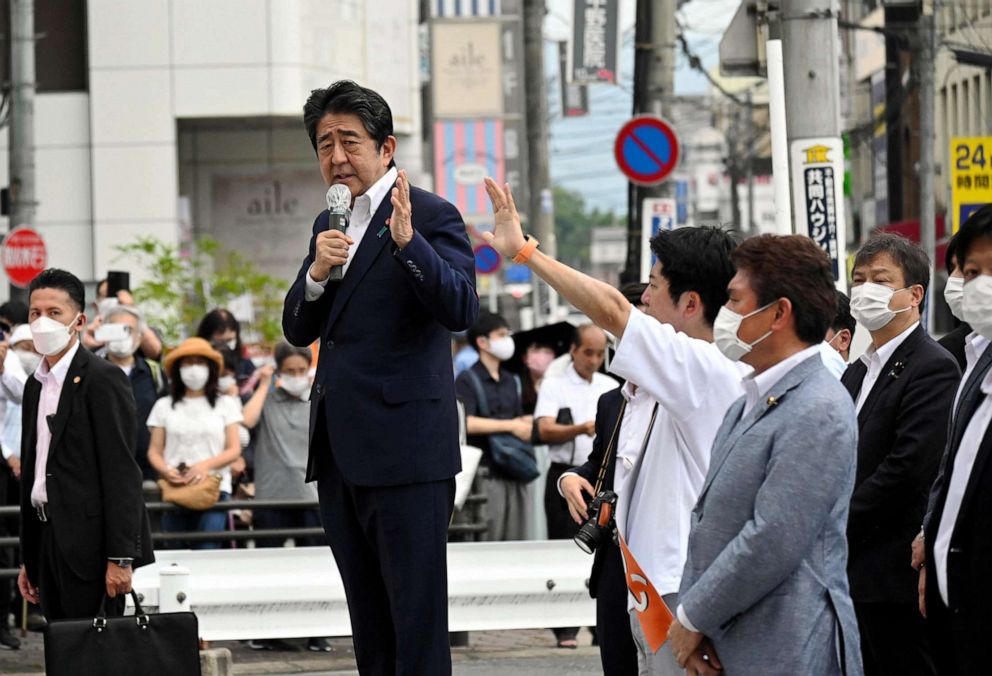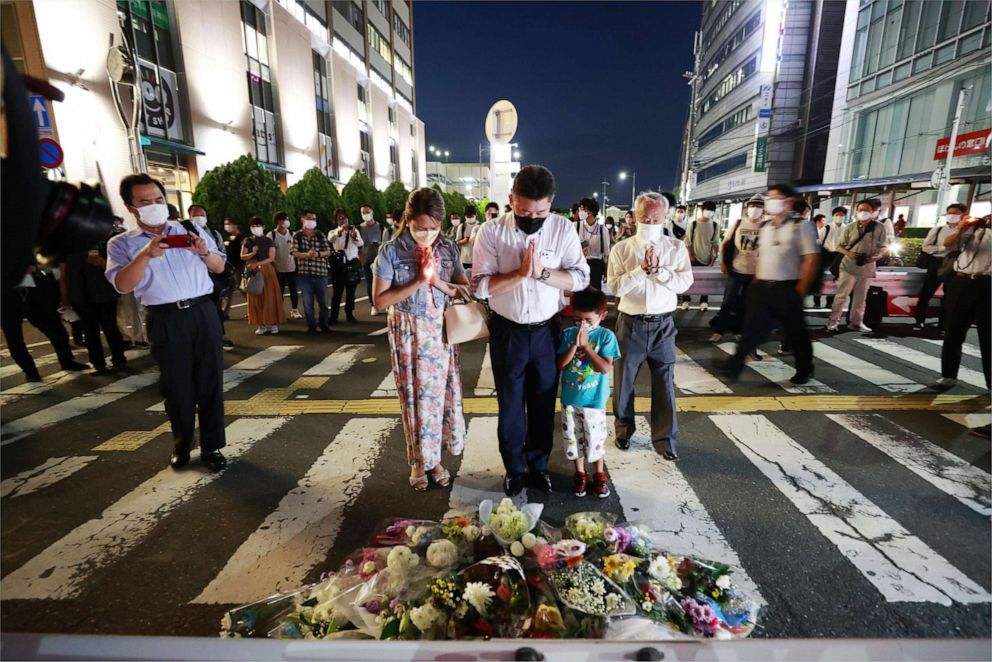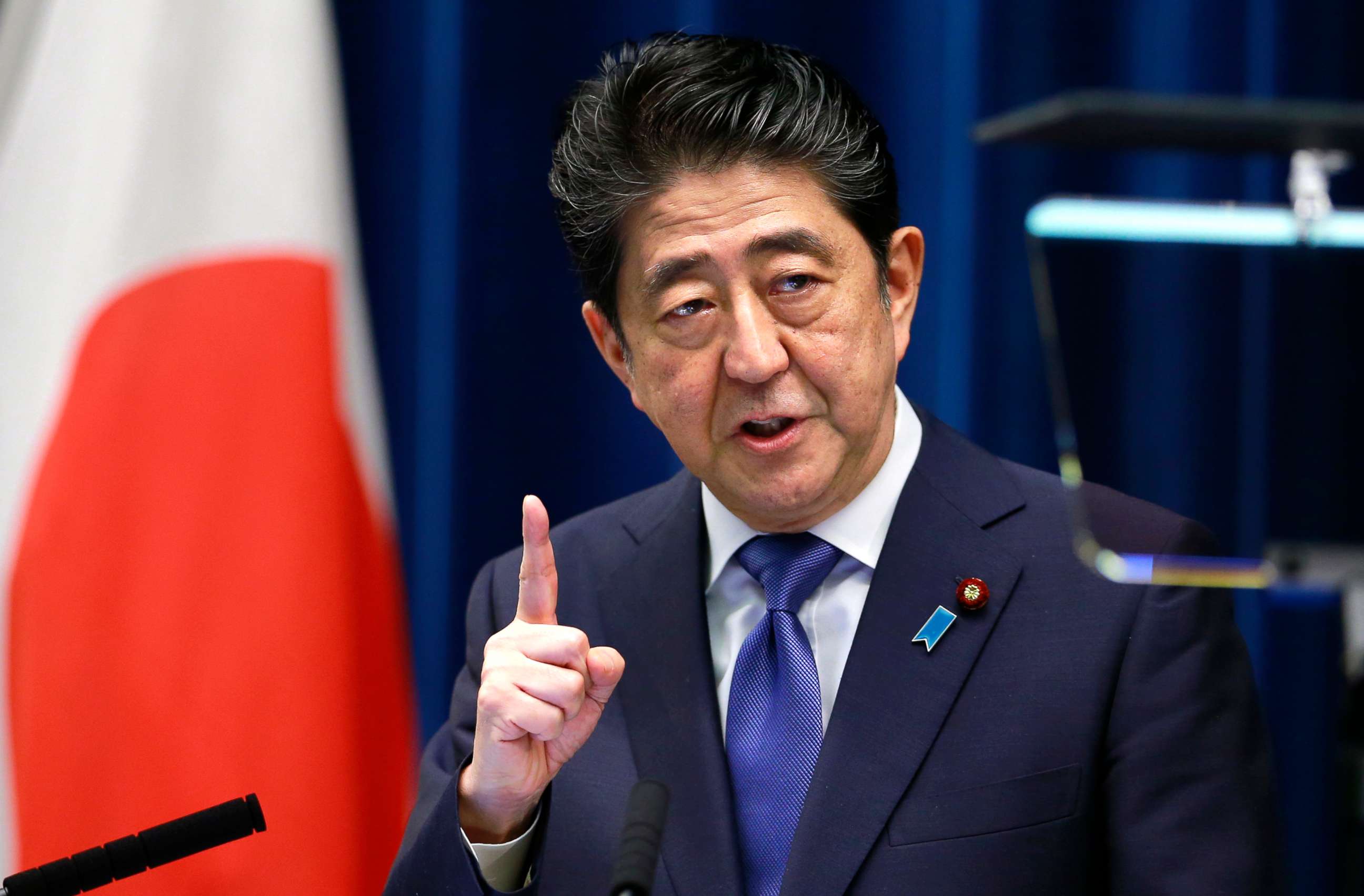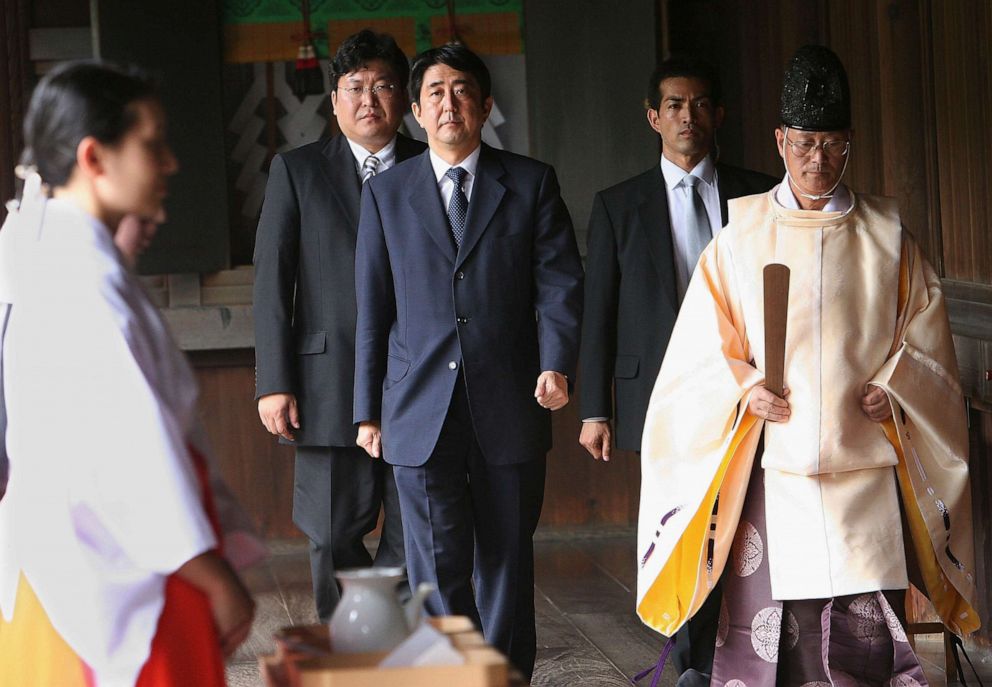Former Japanese Prime Minister Shinzo Abe dies at 67 after assassination
Abe was the longest-serving prime minister in Japan's history.
SEOUL, South Korea -- Former Japanese Prime Minister Shinzo Abe was assassinated during a campaign speech on Friday. He was 67.
Abe was in the city of Nara in western Japan giving a speech in support of his party's candidates in the upcoming upper house elections when he was suddenly gunned down. He was airlifted to a hospital where he was later pronounced dead, according to hospital officials.
Nara prefectural police arrested the alleged gunman -- identified as 41-year-old Tetsuya Yamagami -- and recovered a weapon -- described as a handmade shotgun -- at the scene of the attack on Friday, according to Japanese public broadcaster NHK, a partner of ABC News.
The attack and a motive remains under investigation, but police said the suspect told investigators that he was dissatisfied with the former prime minister and intended to kill him, according to NHK.
Funeral plans for Abe have not yet been announced.
World reacts to Abe's killing
The deadly shooting shocked many in Japan and around the globe. Japan is one of the world's safest countries and has some of the strictest gun control laws.
In an emotional speech from Tokyo on Friday, Japanese Prime Minister Fumio Kishida said he was "lost for words" upon learning of Abe's death. He said Abe had led the country "with great leadership" was his "personal friend," and someone he has "spent a lot of time with."
"I have great respect for the legacy Shinzo Abe left behind and I pay the deepest condolences to him," Kishida said.
The prime minister called the Abe's killing a "heinous act."
"It is barbaric and malicious and it cannot be tolerated," he added. "We will do everything we can, and I would like to use the most extreme words available to condemn this act."

U.S. Ambassador to Japan Rahm Emanuel took to Twitter to express his condolences.
"We are all saddened and shocked by the shooting of former Prime Minister Abe Shinzo," Emanuel tweeted Friday. "Abe-san has been an outstanding leader of Japan and unwavering ally of the U.S."
U.S. President Joe Biden released a statement Friday, saying he was "stunned, outraged, and deeply saddened by the news that my friend Abe Shinzo, former Prime Minister of Japan, was shot and killed while campaigning."
"This is a tragedy for Japan and for all who knew him," Biden said. "I had the privilege to work closely with Prime Minister Abe. As Vice President, I visited him in Tokyo and welcomed him to Washington. He was a champion of the Alliance between our nations and the friendship between our people. The longest serving Japanese Prime Minister, his vision of a free and open Indo-Pacific will endure."
"Above all, he cared deeply about the Japanese people and dedicated his life to their service," Biden added. "Even at the moment he was attacked, he was engaged in the work of democracy. While there are many details that we do not yet know, we know that violent attacks are never acceptable and that gun violence always leaves a deep scar on the communities that are affected by it. The United States stands with Japan in this moment of grief. I send my deepest condolences to his family."

U.S. Secretary of State Antony Blinken also reacted to the news of Abe's death while in Bali, Indonesia, to attend a meeting of foreign ministers representing the world’s 20 largest economies.
"This is shocking, it's profoundly disturbing," Blinken told reporters Friday. "We really deeply mourn the loss for his family, a loss for the people of Japan, a loss for the world."
When asked for comment on Abe's death, a White House official told ABC News on Friday: "We are shocked and saddened to hear about the violent attack against former Japanese Prime Minister Shinzo Abe. We are closely monitoring the reports and keeping our thoughts with his family and the people of Japan."
Meanwhile, a spokesperson for the Chinese embassy in Tokyo told reporters on Friday: "We are shocked by the shooting incident of former Prime Minister Shinzo Abe. During his tenure in office, former Prime Minister Abe contributed to the improvement and development of China-Japan relations. We express our condolences on his passing and our condolences to his family."
One of Japan's most powerful, influential figures
Despite no longer being Japan's premier, Abe remained influential on national security and economic policies and was a central figure within the ruling Liberal Democratic Party (LDP). He was the longest-serving prime minister in Japan's history.
Known to be a hardline conservative within his conservative political party, Abe served as chief cabinet secretary from 2005 to 2006 under Junichiro Koizumi. He was then elected president of the LDP before becoming Japan's prime minister in 2006 at the age of 52 -- the country's youngest premier since World War II.
Abe served as the Japanese prime minister from 2006 to 2007 and then again from 2012 to 2020, before stepping down due to chronic health issues. He later revealed he was being treated for ulcerative colitis, a chronic intestinal disease.

Some of Abe's actions and policies, including his visit to the controversial Yasukuni Shrine to honor World War II criminals and laws that were passed during his time in office allowing the Japan Self-Defense Forces to participate in wars alongside allies overseas, had strained relationships with neighboring nations. He was also a strong vocal critic of China, as he sided with Taiwan's desire to be recognized as a democratic, independent state.
Abe was the first foreign leader to meet former U.S. President Donald Trump after Trump was elected in 2016. Trump called Abe "the greatest prime minister in Japan’s history" and the two leaders held a total of 14 official meetings. They were also known to have been "golf buddies," playing together five times during Abe's second term as prime minister.

During his tenure, Abe pursued aggressive economic policies, dubbed "Abenomics," to bolster Japanese economic growth, which had become stagnant after two decades of sustained success. His so-called three arrows strategy was characterized by monetary easing from the Bank of Japan, government spending and economic structural reforms. While his policy reforms reduced real interest rates and generated inflationary expectations in the market, there are ongoing debates in Japan as to whether "Abenomics" was ultimately effective overall.
Abe was born in Tokyo in 1954 to a politically powerful family. His maternal grandfather, Nobusuke Kishi, helped found the LDP in 1955 and led Japan from 1957 to 1960. Abe's father, Shintaro Abe, was also a leading member of the ruling party and served as Japan's foreign minister from 1982 to 1986.
ABC News' Hakyung Kate Lee, Eunseo Nam, Hyerim Lee, Anthony Trotter and Morgan Winsor contributed to this report.




